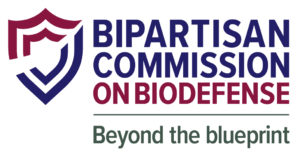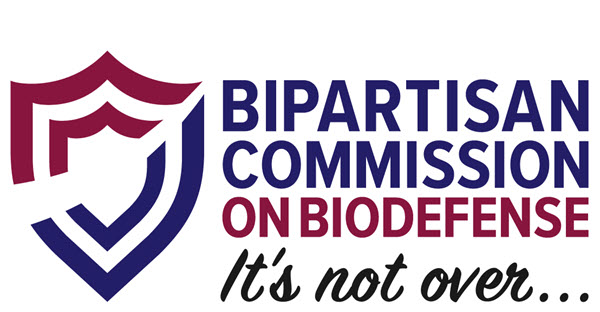COMMISSION EXECUTIVE DIRECTOR DR. ASHA M. GEORGE TO TESTIFY BEFORE SENATE COMMITTEE EXAMINING U.S. BIODEFENSE POSTURE

FOR IMMEDIATE RELEASE
Contact: Steve Aaron
SRA Communications
(717) 554-8614
steve@SRACommunications.com
Senate Committee on Homeland Security and Governmental Affairs to Meet Feb. 17
WASHINGTON, D.C. (Feb. 15, 2022) – Dr. Asha M. George, Executive Director of the Bipartisan Commission on Biodefense, will testify as an expert witness before the U.S. Senate Committee on Homeland Security and Governmental Affairs this Thursday, Feb. 17, at 10:15 a.m. The hearing, titled Addressing the Gaps in America’s Biosecurity Preparedness will be held in Room 342 of the Dirksen Senate Office Building and via videoconference.
The purpose of the hearing is to examine the state of the Nation’s biodefense posture and level of preparedness to respond to biological threats. In 2015, the Commission released its foundational report, A National Blueprint for Biodefense: Leadership and Major Reform Needed to Optimize Efforts, containing 33 recommendations and 87 associated action items for addressing what the Commission saw as serious capability gaps in national biodefense.
“Senator Lieberman and Governor Ridge appeared before this very Committee the day of that report’s release to discuss its major findings and recommendations,” Dr. George will testify at the hearing. “A little over six years after that hearing – and two years into a deadly pandemic that has claimed the lives of more than 900,000 Americans – we find the government has implemented far too little of the Blueprint, and the Nation remains at catastrophic biological risk.”
The Committee will focus on the Department of Homeland Security’s (DHS) current operating organization for biodefense capabilities, as well as the fragmented structure of biodefense efforts across the federal government. Dr. George will testify about the state of the DHS biological detection program known as BioWatch, deployed in 2003 to provide a modicum of biological detection capability against potential attacks.
“Though decisionmakers knew at the time of deployment that the technology was imperfect, and that they would eventually need to replace it, the system has remained virtually unchanged for almost two decades,” Dr. George will testify. “It is important to note that the federal government’s national biological detection system could not assist with tracking the spread of COVID-19, the worst biological event in a century, because they designed the system to detect only a handful of previously weaponized biological agents.”
In October 2021, the Commission released its latest report, Saving Sisyphus: Advanced Biodetection for the 21st Century. The report details the challenges facing the BioWatch program as well as DHS efforts to replace the system and offers a path forward to achievable national biological detection. The Commission recommends that the government quickly substitute BioWatch technology with available alternatives, and to establish a permanent research and development program that adheres to best practices to continually revisit and refresh the program.
Dr. George’s testimony will also discuss what additional actions both Congress and the executive branch can take to increase the country’s biosecurity.
Editor’s Note: Journalists interested in interviews with Dr. George should contact Steve Aaron by emailing steve@SRACommunications.com.
About the Bipartisan Commission on Biodefense
The Bipartisan Commission on Biodefense was established in 2014 to conduct a comprehensive assessment of the state of U.S. biodefense efforts, and to issue recommendations to foster change. The Commission’s 2015 report, A National Blueprint for Biodefense: Leadership and Major Reform Needed to Optimize Efforts, identified capability gaps and recommended changes to U.S. policy and law to strengthen national biodefense while optimizing resource investments. In its latest report, Biodefense in Crisis: Immediate Action Needed to Address National Vulnerabilities, the Commission described the extent to which the federal government has implemented the Commission’s recommendations. Other Commission publications have addressed critical needs for agrodefense, biodefense budgeting, diagnostics, Apollo Program for Biodefense, national biodetection, biodefense of critical infrastructure, and State, Local, Tribal and Territorial response capabilities. In September 2018, the White House released the National Biodefense Strategy, a top recommendation from the Blueprint. The Commission continues to address biodefense challenges and to urge reform. Former Senator Joe Lieberman and former Governor Tom Ridge co-chair the Commission. Hudson Institute is the Commission’s fiscal sponsor.

